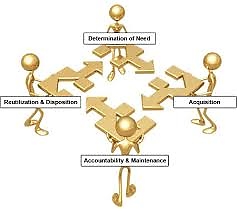Applied ethics examines the specific controversial issues that are introduced by the innovations of this day and age. What I found interesting was that this was the first topic to be addressed within the minor, as I personally expected a more technical or business focussed approach. Professor dr. Jeroen van den Hoven explained to us in his introductory lecture on RI, both the positive and the negative sides of innovation. What struck me the most is the fact that innovation is often a response to demand, where a new business is created in order to meet the needs that have arisen. Apart from potential monetary profits it has brought the world better health care, clean water and sanitation which are all necessary building blocks in the search for a better future. These building blocks are created with a forward-looking responsible way of thinking, another factor that we were faced with in these early stages of the minor. In my eyes the innovations that arise when faced with difficult truths are the most intriguing ones, seeing as innovating is all about looking forward instead of taking a backward-looking responsibility approach. Examples of these were given such as the UN Millennium Goals and the EU’s Grand Challenges, giving attention to urgent moral goals for innovation and applied science on a global scale. This was very much interlinked with the theme of this week, applied ethics, as it is concerned with the way moral outcomes can be achieved in the process of responsibly innovating.
The idea of linking technology with a sense of morality is crucial when new ideas are tested and introduced in society. This brought forth the issue of moral overload, a notion explaining the struggle in finding the perfect balance between privacy, sustainability, efficiency, security, and accountability amongst many other values. If no one can be held accountable for new technologies, we clearly miss a framework in which to operate and improve our innovations. The example of ‘the problem of the many hands’ gave a good picture of a constantly occurring problem regarding responsibility. It is for this reason that the importance of ethics should not be undervalued, when it comes down to new innovations in our society. Technology by itself is not sufficient to create the world that we are working for, by slowly improving every necessary building block. It is the strength of responsibility that allows us to realize new technologies.
After being faced with the true importance of ethics and morality in the creation of new innovations, I understood why this was the first topic to be addressed. Engineers, designers and innovators have to take into account each other’s work in order to prevent unnecessary accidents, which would result in the search for moral responsibility amongst its participants. I would not give rankings to the various elements that play a role in this minor, because they are all needed to reach the universal goals that we create. Whether it is the designer drawing out the plan, the engineer creating the machine, or the person using the final product, accountability will never lose its importance. Especially not with the changes that this world is facing.
